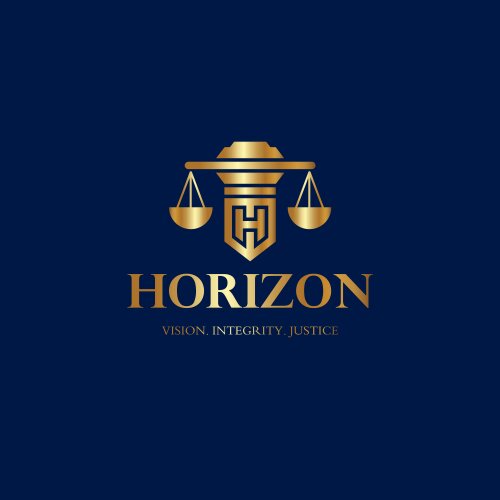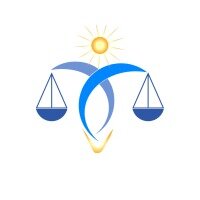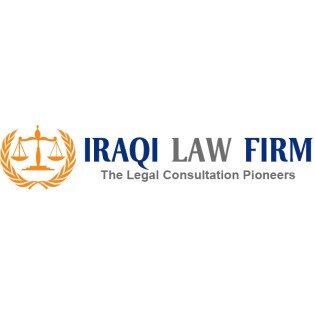Best Aviation Lawyers in Iraq
Share your needs with us, get contacted by law firms.
Free. Takes 2 min.
Or refine your search by selecting a city:
List of the best lawyers in Iraq
About Aviation Law in Iraq
Aviation law in Iraq is a specialized branch of law that deals with air travel and the operation of aircraft. It encompasses various aspects of air travel including aircraft navigation, pilot licensing, aircraft operation, airspace regulation, and aviation safety. The jurisdiction of aviation law in Iraq includes both national and international flights, regulated by a combination of national legal frameworks and international treaties to which Iraq is a party, such as the Chicago Convention on International Civil Aviation.
Why You May Need a Lawyer
There are numerous situations in which individuals or businesses may require legal assistance in the field of aviation in Iraq. These can include:
- Disputes related to aviation accidents or incidents.
- Legal issues regarding aircraft leasing, purchase, or sale agreements.
- License and certification issues for pilots, air traffic controllers, or airlines.
- Defending or pursuing claims related to aviation security or passenger rights.
- Compliance with aviation regulatory standards and safety protocols.
- Business-related issues, such as starting an airline or expanding aviation services.
Local Laws Overview
Iraq’s aviation sector is primarily governed by the Civil Aviation Law, which provides the legal framework for the regulation of civil aviation activities within the country. Key aspects of local aviation law in Iraq include:
- Regulation of air traffic and air navigation services.
- Certification and oversight of aircraft and airlines for safety compliance.
- Establishing rules for airport construction and operation.
- Laws concerning the environmental impact of aviation activities.
- Regulations on international and domestic cargo and passenger flights.
Frequently Asked Questions
What government bodies regulate aviation in Iraq?
The main regulatory body is the Iraqi Civil Aviation Authority (ICAA), which is responsible for overseeing aviation activities and ensuring compliance with both local and international standards.
Do I need a special license to fly a drone in Iraq?
Yes, operating drones in Iraq requires a permit obtained from the Iraqi Civil Aviation Authority, which outlines specific usage guidelines and restrictions.
How are aviation accident claims handled?
Aviation accident claims in Iraq are handled through a combination of investigation by the ICAA and potential legal action under Iraq's civil law framework, often requiring specialized legal representation.
Can foreign airlines operate in Iraq?
Yes, foreign airlines can operate in Iraq, but they must comply with Iraqi aviation regulations and obtain necessary permits from the ICAA.
What are the legal requirements for starting an airline in Iraq?
Starting an airline in Iraq requires approvals from the ICAA, including certification of aircraft, compliance with safety and operational regulations, and securing necessary financing and insurance.
How does Iraq handle airspace regulation?
Iraq's airspace regulation is managed by the ICAA, which oversees air navigation services and ensures safe and efficient use of the airspace.\
Are there special considerations for military flights over Iraq?
Military flights over Iraq are subject to specific agreements and regulations, often negotiated at the governmental level, distinct from civil aviation laws.
How does Iraq approach aviation security?
Aviation security in Iraq involves adherence to international guidelines, supplemented by national measures to ensure the safety of passengers and cargo, with oversight by the ICAA.
What are passenger rights under Iraqi aviation law?
Passenger rights in Iraq include compensation for flight cancellations, delays, and baggage issues, in line with international aviation agreements and local consumer protection laws.
Is there a process for reporting aviation safety concerns?
Yes, safety concerns can be reported to the Iraqi Civil Aviation Authority, which investigates incidents and enforces aviation safety standards.
Additional Resources
For those seeking further information or legal advice in the aviation sector in Iraq, the following resources may be helpful:
- Iraqi Civil Aviation Authority (ICAA) - Provides regulatory guidance and oversight for the aviation industry.
- Ministry of Transport - Offers insight into transportation policies, including aviation.
- International Civil Aviation Organization (ICAO) - Provides international standards and best practices that Iraq adheres to.
- Local and international law firms specializing in aviation law.
Next Steps
If you find yourself in need of legal assistance in the aviation sector in Iraq, consider the following steps:
- Identify the specific legal issue or concern you are facing in relation to aviation.
- Gather all relevant documents and information that might pertain to your legal matter.
- Research and consult with a legal professional or firm specialized in aviation law in Iraq for tailored advice and representation.
- Engage with the Iraqi Civil Aviation Authority or relevant governmental body for guidance on regulatory matters.
Lawzana helps you find the best lawyers and law firms in Iraq through a curated and pre-screened list of qualified legal professionals. Our platform offers rankings and detailed profiles of attorneys and law firms, allowing you to compare based on practice areas, including Aviation, experience, and client feedback.
Each profile includes a description of the firm's areas of practice, client reviews, team members and partners, year of establishment, spoken languages, office locations, contact information, social media presence, and any published articles or resources. Most firms on our platform speak English and are experienced in both local and international legal matters.
Get a quote from top-rated law firms in Iraq — quickly, securely, and without unnecessary hassle.
Disclaimer:
The information provided on this page is for general informational purposes only and does not constitute legal advice. While we strive to ensure the accuracy and relevance of the content, legal information may change over time, and interpretations of the law can vary. You should always consult with a qualified legal professional for advice specific to your situation.
We disclaim all liability for actions taken or not taken based on the content of this page. If you believe any information is incorrect or outdated, please contact us, and we will review and update it where appropriate.
Browse aviation law firms by city in Iraq
Refine your search by selecting a city.

















